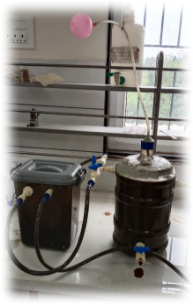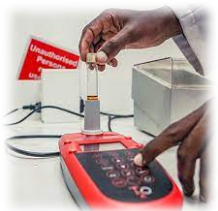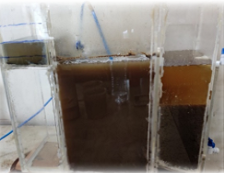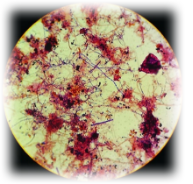AGUAR WATER TECHNOLOGIES LLP

WTP, ETP Design Consultancy Technical Services
Process design, process flow diagram, unit and equipment sizing with specification, layout diagram, estimate CAPEX & OPEX, utilities requirements, P & ID and detailed layout/hydraulic flow diagram General arrangement drawings of RCC, architectural and RCC drawings and design for the civil units General arrangement drawings of all fabricated units, electrical load list of ETP, specifications for all mechanical equipment and instrumentation, pipe sizes, valves schedule, assistance in vendor selection /finalization
Total water management
Total water management is a dedicated study on water consumption pattern of an industries various water processes and its proper management to optimised the resource. It is needed because the capacity of the environment to bear its load may be nearing its limit, and we cannot afford to waste or misuse water. It is a new way of using tried-and-true methods to create a framework for principles and practices of sustainable water resources management.
which can cause rapid and costly corrosion of the condensate return lines.
Energy conservation studies
Industrial energy conservation and improved energy efficiency should be national policy priorities in the developing countries to reduce greenhouse gas emissions. Energy conservation is the effort to reduce wasteful energy consumption by using fewer energy services. We provide energy conservation studies for using energy more effectively by fixing steam leaks and condensate leaks (a 3 mm diameter hole on a pipe line carrying 7 kg/cm2 steam would waste 33 kilo litres of fuel oil per year).
ETP site and lab studies
Our professional studies on your ETP site & effluent samples to identify treatment process design to reach better treatment quality. We provide a cost effective tailor maid solution so that it meets the desired sustainable quality of each individual treatment process and maximum optimization of CAPEX and OPEX
• These studies affect two major elements:
1.The success of the process design during the study we practice several studies to assure that we are selecting the optimal one and that we eliminate the risk and guarantee the success
2.The design of the individual treatment process practical approach considering actual characteristics of effluent and its require treatments to achieve desire output quality
• At the end of the study, we submit a comprehensive report that will conclude followings:
1.Summary of what we observed and concluded (analytical & process data)
2.The treatment scheme that we recommend to implement in order to meet desire standard

Water Treatment Plants AMC services
The program will offer clean and corrosion free surface area with the help of continuous monitoring and control, data management, on-site consulting and testing, ongoing system maintenance and monitoring, and other value-added services.
Every 10 days service visit is included in the given program on site from our service representative for water sampling & physical observation purpose. Chemical dosing training will assist operations personnel to familiarize themselves with the new product numbers and review the chemistry. Water sampling report will be submitted to concern person with corrective actions if any required.

Treatability Studies
A wastewater treatability study is a study or test that tells us how the wastewater might be treated. It will clearly identify the problem in your effluent wastewater stream, helping ensure the proper treatment solutions are considered.
Once you communicate your wastewater management problematic areas we can perform a study to determine how to pre-treat whatever your concerns are while also testing for other problematic contaminants.
Depending on the scope and nature of the treatability study, it could take anywhere from a week to approximately 45 days to come up with accurate results.
Once the treatability study is complete and the problem is identified, a plant scale trial suggested with different/identified solutions.

ETP Bioprocess microbial analysis
ETP bioprocess diversity of bacteria is necessary because different strains of bacteria are more effective in degrading different organic compounds. The biomass becomes adapted to the influent and will provide the required results. For an effective treatment, suitable organisms with right concentration are require to restore the degradation process. These adapted organisms are better suited for conditions e.g. temperature, pH, salinity, etc.
Bioprocess microbial study helps in analysing the current health and status of the biological system at your ETP plant. This test will help in quantitative and qualitative analysis of the microbial population present in the biological system. The population density and diversity of macro and micro fauna of the effluent are useful for determining the probable causes of poor organic removal, low MLSS, bio-systems toxicity and foaming.
